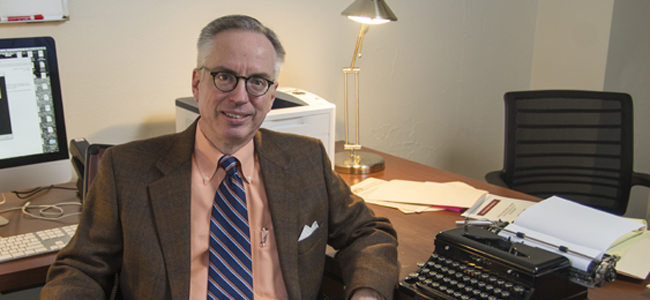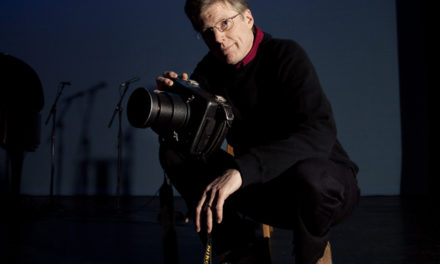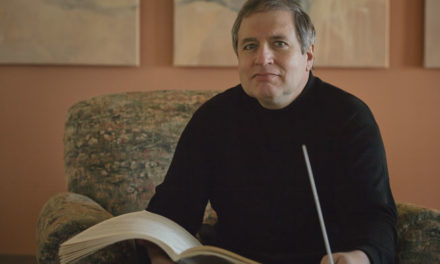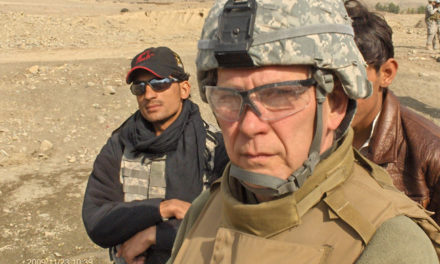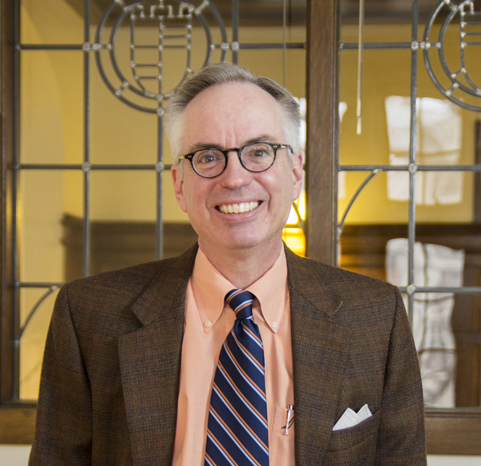
Nick Cullather, associate dean for academic affairs in the newly created School of Global and International Studies. Photo by Darryl Smith
BY MIKE LEONARD
In 1981, after earning a degree in political science from Indiana University, Nick Cullather bought a one-way ticket to Washington, D.C., and quickly landed a job as press secretary to Indiana Congressman Lee Hamilton.
“At the time I was the youngest press secretary on Capitol Hill,” he recalls. “I was all of 22.”
Hamilton was majority leader of the Committee on Foreign Affairs, chairman of the Subcommittee on Europe and the Middle East, and chairman of the Permanent Select Committee on Intelligence, which was making lots of inquiries into what became known as the Iran-Contra affair. His international involvements perfectly matched the interests of Cullather, a South Bend, Indiana, native.
After five years in the position, Cullather went back to school, earned a master’s and Ph.D. from the University of Virginia, and took a job working as an historian for the CIA. “The Cold War had just ended and Sen. Daniel Patrick Moynihan was talking about eliminating the CIA,” Cullather says. “The CIA in response was releasing a lot of its documents and hiring historians to go through its history and write about it.”
The new openness allowed Cullather to assemble a candid history of the CIA’s covert operations to overthrow and replace the government of Guatemala in 1954. Although his work originally was meant for internal use, during a brief period of open disclosure in 1997, Cullather was allowed to publish his findings in a book, who The New York Times called it “an astonishingly frank account,” documenting how the CIA chose targets, planned strategies, and organized the mechanics for a secret war.
Cullather left the CIA after a year, joined the IU Department of History, and has taught classes on the world wars, Vietnam, and American foreign policy. Last year, he joined International Studies as associate dean for academic affairs. “We have this tremendous wealth of cultural knowledge here at IU,” he says. “The languages we teach. The way you can study these cultures not just in a superficial way but through history and literature. We’re very humanities based.”
This winter, Cullather, 56, was ensconced in his new office in old Memorial Hall, where he’s planning hiring and curriculum for the international school, which will move into its new building in the center of campus this fall. “It’s funny. As an undergrad, I lived in Willkie Quad. Now I’m a block and a half away. This is how far I’ve come in life.”


